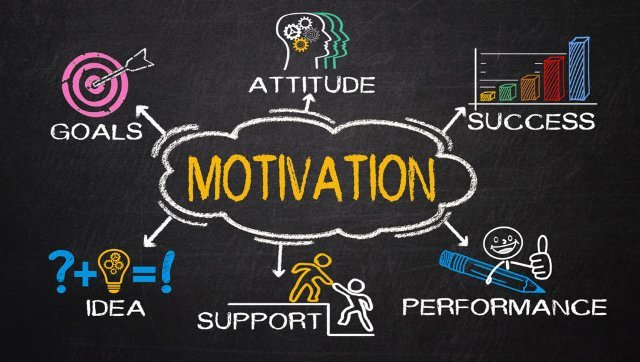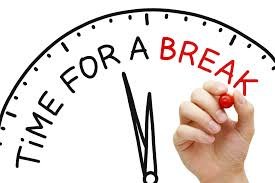💡How, where and when to study?💡
HOW DO WE VISUALIZE THE STUDY?
If the study focuses on test time, fatigue time and fatigue time, study is always hard work. When we are organized, we have time and plan our work, surely the results are more good and effective.

1
Why do we study?
For an effective study, the fundamental ingredient is motivation or motivation; what usually reflects in apathy, boring and leaving everything for tomorrow
Students who are unmotivated often lack initiative and imagination, they just do, usually what they say. They fail to concentrate and have difficulty remembering what they have studied.
QUESTIONS THAT EVERY STUDENT SHOULD RAISE HIMSELF
Why and why do I go to school?
Let's see the possible answers:
- To please my parents, teachers, friends, relatives.
- Why do I do well in school?
- I am attracted to social life.
- To become a professor, doctor, engineer...
- I would not know what else to do.
- To instruct me more.
- To deepen the subject that interests me.
These reasons are not all apt to help the student work in earnest. The most satisfactory are 4 and 7 because they have as a goal a professional preparation.
How long should I study?
The organization based on time is essential in a working day, so we must consider the following; In a week there are 24 * 7 = 168 hours, this should be our starting point to plan in time from the particular to the general, that is, depending on the day to the week, that is why we must break down the daily activities that include , spend time, recreation, rest and study time.
When establishing our personal schedule we must take into account the following:
- In a week there are 24 * 7 = 168 hours; of which not all are for the study, each day will spend sleeping more or less the third part of this time, perhaps others of the hours will dedicate the meals and another as much to the rest and the distraction. It is up to everyone to set the free time within those 168 hours.
- The activities that you should never exclude from your free time since they are essential for your well-being are: sports, dancing, conversation, cinema, theater, visits.
- At least one day entirely for the study.
- One morning, one half day and one afternoon at all free and preferably on different days.
- When you have added sleep, meals, trips, school attendance and free days, you will realize that you still have time at your disposal a little time.
What to study?
Always think about dedicating your time to the study of particular subjects, not simply to "study". You can set priorities according to the difficulty that subjects present for you.
When to study?
The ideal would be to study after an expository lesson, that is, the traditional lesson in which the teacher makes an argument. What would serve as a way to measure and control if you really understood what was explained in class and review your notes and inquire into some information gap.

2
Another idea to consider is a good rule to match at least a good part of the subjects of study with the lessons of the day. If possible the same day before and after the lesson. It is better to study before a discussion or a group work because you would have the possibility to contribute and intervene in the right way.
In choosing the day to study a subject you must also take your temperament into account. It may turn out to be a disaster on Monday as long as Tuesday seems better for you to deal with a new or difficult issue. On Friday you may be too tired to do more than simply review.
• It is very difficult to keep the mind immune to distractions, so it is better to study a place free of new things and faces that have diverted your attention.
• Make sure that the place where you study is well lit and aired, neither too warm nor too cold.
• The best position is to sit at a desk or table. The bed can be nice but you will probably fall asleep as soon as you lie down. Too much comfort is the enemy of study.
• Begin to study once you have decided to do so do not sit without doing anything, starting to read the notes you wrote on the subject, write the essential points you remember preferably make summaries about what you remember.
Concentration
To get used to concertarte and to pay attention you need strength of will and tenacity.• If you find it difficult to concentrate on a given topic, start by studying only a very short time.
• Try to study something in periods of 45 minutes. If this scares you, we stay in 20 minutes or up to 15 minutes, but in them do something seriously.
• Test yourself if you are capable and, little by little, you will learn to work for a minimum of 45 minutes.
• If the imagination takes you away or you deviate from your goal, stop working and give yourself a brief pause. Then he returns with determination to the study.
• Another way to concentrate is to take notes, find a way to write down what you are doing in the time devoted to the study. You will stay alive and attentive and the notes will help you with the review.
How to conclude the study?
• Try not to suspend at a difficult point of the subject, as it would be heavier next time. Instead tart to leave the study in an interesting point that makes you continue with the argument
• Use the last minutes to review what you have studied and to make a last check.
When you know what you have studied
Only when you are able to communicate to others with your own words (without memorizing) everything you have studied. Then you can say with complete certainty "I already know".

motivation
Give yourself a motivation, especially in things that do not attract much, is an indispensable condition to face it with intelligence good will. Therefore, motivation is almost synonymous with success.


To get used to concertarte - you may want to fix this typing error.
I love how you explain about concentration here in your post. A good read indeed! Thanks for sharing.
The concentration and motivation are fundamental to obtain good results when studying